#credit your gif makers this cannot be said enough
Explore tagged Tumblr posts
Text
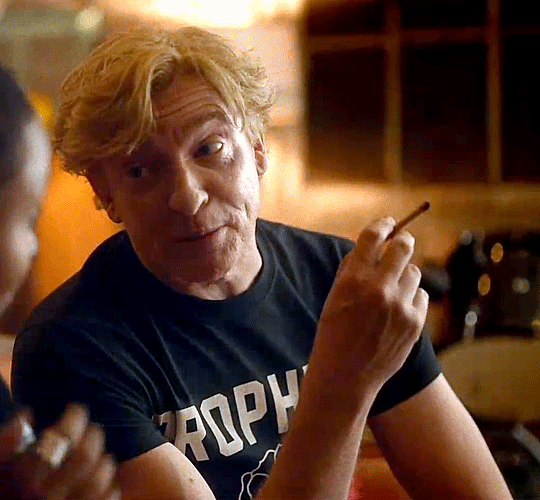
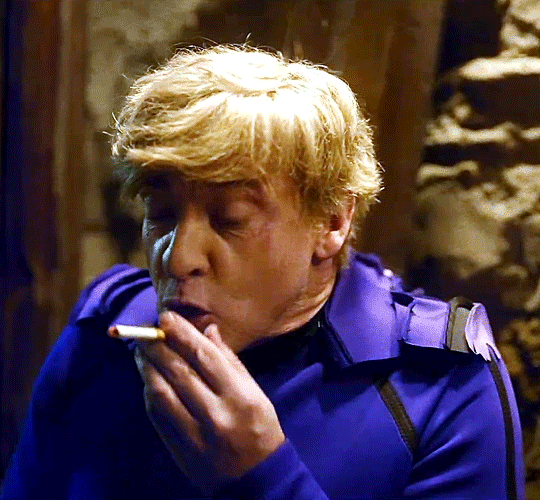
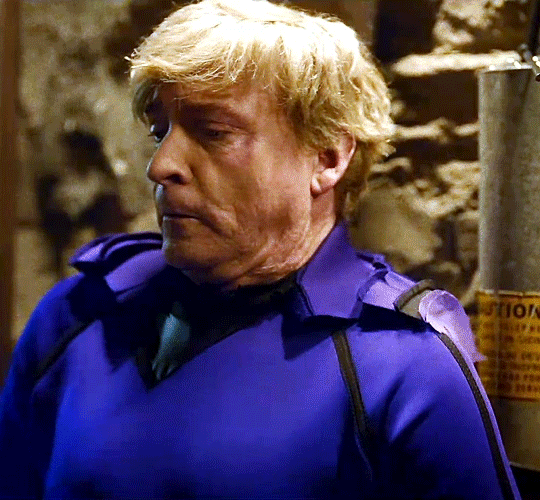
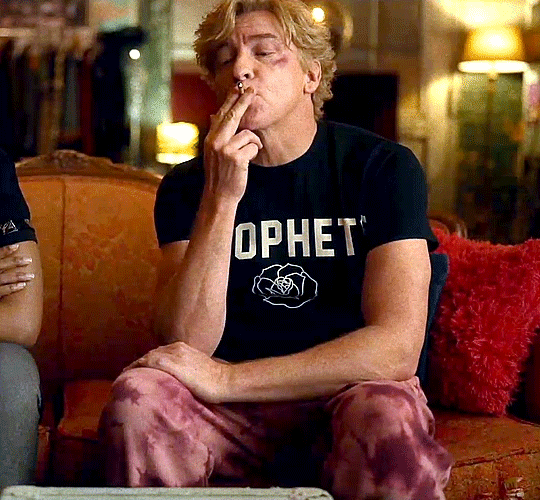

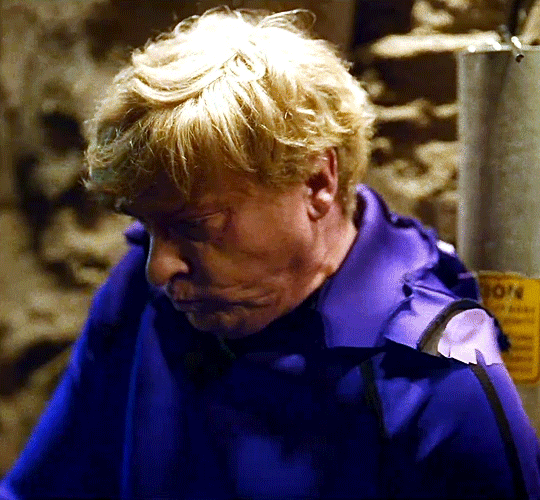
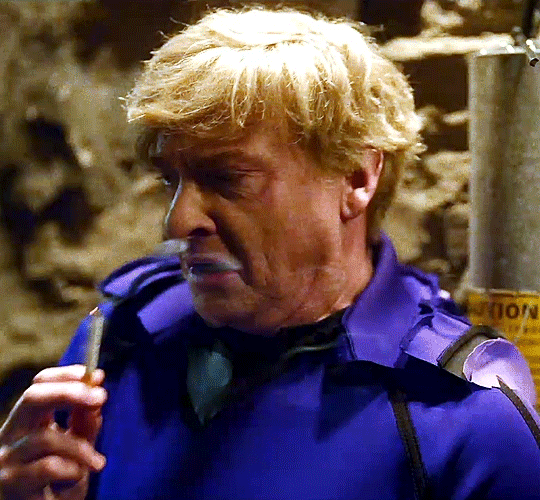

RHYS DARBY as Casper | Relax I'm From the Future if you're on twitter and plan on stealing these and reposting them as your own over there, please DM me for better quality gifs for your theft <3
#rhys darby#rhys darby gifs#relax I'm from the future#riftf#riftf gifs#riftf edit#rhys darby edit#moviegifs#my gifs#totally normal for rhys darby tumblr association#credit your gif makers this cannot be said enough
217 notes
·
View notes
Text
King of Cups || Chapter 8

Chapter 8: Judgement
Archive: ao3 | masterlist | seven
Pairing: Din Djarin x fem!Reader
Summary: Things have changed, things have stayed the same.
Word count: 3.7k~
Rating: Mature
Warnings/tags: e m o (i can't stress this enough), illusions to mental health issues (?), emo, mature themes and language, EMO, family-trauma related angst, emo
Notes: I wanted to completely cut Din's perspective out of this chapter to emphasize the reader's pov. Hopefully it tracks? Big lovey-dovey shout out to @pedros-mustache for bonking me in the head with a proverbial pool noodle. ily friends. Be kind to yourself. Cheers x (gif credit: @bestintheparsec)
This is fine. You’re fine.
You’re okay with this.
You’re okay with this.
You’re okay
You’re
You think, perhaps, the sting is made worse by the normalcy of it all.
You think, perhaps, that this stabbing—this splinter in your gut, prodding prodding prodding—would not be so sharp if it were different between you—if things were different; if it were clumsy and cumbersome and mauled. Ruined.
But it isn’t; it’s the same. You and Din and his boy, his adi’ka—it’s ordinary. Evergreen.
You suppose you should be grateful—grateful your dynamic hasn’t shifted, hasn’t sullied any. Grateful you still have your Mandalorian piloting you home. Grateful you have his foundling to keep you company, to keep you preoccupied.
But you feel false.
It’s as if you slipped into an alternate reality—one where you and Din touched each other, held each other; one where he buried his frustration to the hilt in your womb and you moaned his name like your tongue was formed for it—and then were snapped back to this one here—this nothing, this void—without anyone taking note of your absence. Because your routines—those domestic tableaus—remain unchanged. They are well-oiled and operate regardless— undeterred, succinct.
The days start the same.
You set aside a warm bowl of fruit and porridge, steam rising to greet him as it fans over his helm. Good morning.
Exiting the fresher, you find the dishes washed and dried—the towel folded neatly into a square beside them. Good morning.
You return the bowls to their shelf, nestling them right next to your unfulfilled expectations and embarrassing desires—butted against your silly, silly heart.
“Anything good?” he asks one night, passing through the galley as you thumb through the news on your holopad
You nearly choke on it—your throat closing up tight around the casual banality of the question. Because that’s what you two share now: you have things. You have quips and lines and normal and none of that disappeared after you’d made each other unravel not four paces away, pressed there against that wall—the wall that stands there even now, a tall and mocking reminder.
You wonder, if you sealed your ear to the bulkhead, could you still hear yourself? The symphonic reverb—your girlish pants, Din’s hoarse rasps— trapped there in the seams of the steel siding like the grooves of a record, to be played and played again.
“Never,” you say, like you’ve always said, and do your best to flash him a grin—the one you’ve worn before, the one, perhaps, you hope he likes. The one where you go dimpled and dove-like.
And then he makes for the cockpit and you are left
without.
The afternoons stretch familiar, too.
Din flies the ship and you watch the child—steering him clear of disasters and shenanigans the best you can. He tugs gentle at your hair; you nip at his little hand until he’s dissolved to giggles—the same the same the same, all of these acquainted patterns continuing to revolve on. Din lands and prepares for his hunt—banging around the belly of the ship, gathering weapons and ammunition and rations—and your eyes skitter along after him, following his hulking figure as he steps past where you and Munch are seated, heading towards the mouth of the Crest.
Din.
You’re half afraid of what it will sound like now— what it will feel like, bruised and jagged in your mouth. Like it doesn’t belong there, like it has no right laying claim to your tongue.
“Din,” you call hurriedly to the span of his broad back as he leaves the ship, your spine straightening out of the chair. You say it; you speak his name and to your surprise find it is none of those things—none of those ugly fears, none of those roughened gums. It’s worse.
Because scarier still, it comes out cotton soft; it comes out comfortable and true. It tastes like home maybe — like a version of home where people could come and go and laugh and not be frightened. Where they could hold little children in their arms and sleep and breathe and be and say I am here with you. Here we are. How special. I have chosen this. I have made this with you.
Din.
His shoulders tense and his feet stop short, just before the apex of the ramp. He turns to you, slow. Controlled.
“Good hunting.”
Din looks at you, the heavy umber of his eyes settling on your own, and he freezes—stock-still, his blood and muscles and bone thickened to paste, rendering him motionless. His dark gaze scans over you—the wisps of hair dancing around your face, the sag of your shirt lolling from your shoulder, his son in your lap. You bounce Munch on your knee and he gurgles out a quieted hum, glancing between his surrogate parent and you.
“Thank you,” Din replies, stilted, and you think you discern a subtle scrape of his modulator; you think you sense his lips part, pained and breathy, the cusp of another thought—of more, anything more— corralled by his sense of duty, hampered by the armor that plates him.
You untangle the boy’s claws from your hair and slip your fingers around his wrist, waving his green hand in a delicate to and fro.
Goodbye, it says. We’ll be right here when you get back.
He stays. For another glimmer of a millisecond he remains, sunlight pouring in through the opening of the Crest—shining off his beskar, off the gunmetal grey covering his body—focus trained on you both—before he pivots, cape whipping behind him as Din vanishes like he does without fail—away. Away.
To vapors.
Three days of this—three miserable days. Seventy-two suffocatingly mundane hours.
You figured this would be easy. You figured it could be as painless as you chose to make it. You were two consenting adults, after all—you both had needs, and you both met them—and you thought that this would be simple.
What you failed to take into consideration however, is that Din Djarin is anything but a simple man.
Because he is all these things, paradigms and paradoxes, coiled into one very tightly wound warrior—a warrior who can dismember a blaster just as effectively as he can sop up baby vomit from his foundling’s brown robes—one handed, no less. In flight. Din is all sharp edges and smooth silver, he’s cold and calculating and roguish and endearing and you can’t grapple with the dichotomy of him—with all these mismatched pieces at odds with themselves that somehow fit perfectly, inexplicably together.
You were naïve to assume you could go back—as if you could unremember the shape of his fingers as they filled you; as if you could make yourself forget how needy he bowed against you, how hot and thick his cock rested in your palm when he pitched his hips and released his desperation in white streaks along your skin.
And when your mind isn’t wholly consumed—smothered with the crushed velvet sin of that time-capsuled memory—it’s tortured in other ways, with crueler techniques. Pointed. Specified.
You watch him. You wish you could look away, but there isn't anywhere else to look. There isn’t a corner you can escape to, nor an inch of the Crest that isn’t him—isn’t an emblem of him, isn’t an extension of his personage.
You see him - day in, day out - interact with the child and Maker, it’s so precious and he’s so damn good. Two arms, cradling Munch snug to his chest—you know their strength now, you know their weight—and you observe as Din holds this boy with the same hands that unmade you—that molded you like clay and parted your wet heat. You see this man—so stoic, so reserved—dote on his child in a way that you never were, and bit by bit, it breaks you.
You caught them napping together once, compressed in that dingy of an alcove by the refresher. Your feet halted in their tracks at the sight and you held your breath—he’s a light sleeper, you didn’t dare wake them—Din’s helmet nodded to his chest and the kid, open-mouthed and adorable, nestled into the crook of his arm.
It made you want to sing. It made you want to cry.
You had to pry your boots from the floor and force yourself to move, to scram. You had to be anywhere else but there, ogling like a spectator at a zoo, nose smushed against the glass, watching the last of some great species simply be as nature intended—calm, drowsy, at peace.
You busied yourself then, scuttling preoccupied about the Crest but the image never evaporated, it never faded—it dogged you, tacking itself onto your psyche: the picture of him there, Din and his boy, holding on to one another like anchors while they slept, and you can't resist drawing the question.
Is that what it’s supposed to look like, to feel like—a father’s arms around your shoulders? Is that what safe looks like? Is that what family is?
You wouldn’t know. You cannot recollect the glow of it—the memory of such an embrace—on your own skin, and isn’t that what makes it all so achingly befitting, so inevitable. As if the Moirai—those weird sisters—spun this string of fate tailored to your being and plucked it like a harp, curating a melody for you and you alone.
Because you see Din give what you never got, and it makes you want. You want him. You curse yourself for it, but fuck you want him—every sordid part of you is tugged and pulled in his direction. You want him, magnetically, you want him you want him you wa—
And Din is fine. A Mandalorian pillar, undisturbed. He is bedrock. This is the Way.
And while he withstands the weathering, you crumble beneath it. It's eroding you. Like tides crashing monotonous against a beaten shore, you are in granules—and these morsels, ever-fine, they nick you - gritting - sanding you raw, abrading you rugged.
You thought you could ignore them at first. They were but lace whispers behind your ear—muted and tickling and just far off enough to deflect. But with each passing moment those feathered words grew loud—rude and vocal and you couldn’t keep them out. Round and round, they wriggled into your most tender swathes of skin. Skipless. Poison.
He regrets it.
He didn’t want it.
He didn’t enjoy it.
He didn’t want me He doesn’t want me I’m not wanted
These thoughts, insistent and pervasive, they are sewn into the bed of your mind one ugly seed at a time. You water them. You don’t mean to, you don’t wish to cultivate these errs but you know they will fester and grow with or without you. So you tend them—watchful, you garden—and they push up through the soil, sprouting weeds, choking the dirt. Marring it fallow.
But you’re okay with this. You’re fine—look at you, you’re fine.
///
The planet of Jelucan is bustling.
It’s got a pulse of its own, energetic and thrumming; there’s an electric current charging the cool air. It’s alive. This place is alive. Towers and buildings are chiseled into the cliff faces of the mountains framing the city, reaching tall towards the pale blue sky overhead. The capital—Valentia, you learned—is almost offensively busy— far busier than any of the backwater territories you and Din had explored in the recent months. There’s so much noise, it’s cacophonous— speeders dodging pedestrians milling about the throughway, engines whirring and backfiring, merchants arguing, hawking foods and goods from their windowed shops and brightly colored stalls, politicians and well to-dos seemingly gliding above it all as the common rabble of varying species and origins mingle and mix.
You suppose it reminds you of Coruscant. You suppose that makes you nervous.
Because you’ve been holed up in his ship and flitting through the Outer Rim, seeing the stars and the moons and planets and there’s just so much life—everywhere, everywhere— this galaxy is chalked full of it; it’s spilling over the sides with it all. And Maker, these months have felt like an adventure; they’ve felt like a fantasy, like an escape. You’ve eloped, caught in the whirlwind romance of it all—shirking your duties, your career, absconding from your shitty, shoebox of an apartment back home.
But Valentia is all too quick to ground you, all too eager to remind you of that blissfully forgotten reality; it taps on its wristwatch, gutting you with a look:
your time, my dear, is up.
The cobbled pavement underfoot is stony and industrial, each step landing too hard, too hollow—like everyone can hear your chipped heart pounding through your boots—exposing you, coloring you a liar.
This is fine. You’re fine. You’re okay with this.
You’ve been telling yourself that—bargaining, pleading—attempting to manifest into fruition; speaking it to yourself like a chant in hopes it’ll stick—in hopes you’ll fall for the ruse.
But it’s as if each dulled footfall shakes the rust from your neglected truth, revealing all too plainly that no. No, you’re not. You aren’t.
You and Din do not walk in tandem—his gait is longer, and he’s a stride in front of you—but there isn't so much space between your bodies that his presence doesn’t distract you completely, doesn’t eat you up and make you fizz. Your gaze could latch anywhere in this packed, teeming city, and you would still see him. Still feel him—on the nape of your neck, in the wet pink of your cunt. Throbbing reminders of the man that has knotted himself so seamlessly into your world.
You shake your head, locks rustling— as if you could rock him loose from where he clings on to your mind— when you feel a spindled hand at the wing of your back. Startled, you spin towards the touch.
There’s a woman— she isn’t human, but judging by her general appearance she’s some species close to it. She’s old. Whittled. Her maroon eyes are clouded, her silvered hair swooped back into a low bun, wiry frizz haloing the crown of her head.
She’s petite, but it looks wrong— inorganic. Too knobby, she’s all elbows and boney angles where she shouldn’t be. It’s as if she’s shrinking, right there before you. Time, pressing her in— pressing her down.
She’s lived a life in the sun; she wears lines on her face, deep and haggard, and her skin is pulled taut around her skull like hide stretched over a tanning rack. She’s ancient, prehistoric.
She’ll probably outlive you all.
An alien language you don’t recognize comes spilling fast from her thin mouth. You can’t decipher the string of words rushing like river water, the current unstoppable, but you garner she’s insistent; there’s no misconstruing the earnest fervor in her voice. Something woolen is held tight in her grasp—a blanket, by the looks of it, intricate and pleated—and she’s handing it to you like her very existence depends on it.
“I’m sorry,” you begin, confusion evident on your brow, “I’m sorry I don’t—”
She continues speaking, urgent and desperate and pleading—gesticulating as she offers you the throw, the shiny golden thread needled into the patchwork winking in the afternoon sun. The child slung at your side chirps curiously, saucer-large eyes following the shimmer of the fabric.
“I’m sorry, it’s beautiful - really - but—”
You’re jobless and blowing through your savings at a blistering speed. You barely have two measly credits to rub together; getting supplies is tricky enough as is. Purchasing something as ornate and superfluous as a blanket was out of the question. Munch coos sadly, a twitter of his voice, and it ruptures your heart to say it, “I can’t afford something like this.”
The bell on the door to the adjacent shop grabs your attention, producing a Twi’lek as it opens. She’s younger, perhaps around your age, and her lilac lekku bob as she bounds over to you.
“Hi,” she breathes, lips pulling back to reveal a charming smile as she glances between you two. “Everything okay?”
Before you can get a word out the elder resumes chattering, incensed as she addresses the other store attendant—you think it might be Old Corellian, some archaic dialect you presumed died out eons ago, predating the Battle of Yavin by centuries.
Just how old is this woman?
There’s a hushed exchange between them—the Twi’lek’s attempt at the language proving stiff. Her cadence is clunky, nowhere near as smooth and lilted as the other woman’s, but they must come to some sort of a conclusion, because they face you—two sets of eyes, burrowing blinkless into yours. The girl takes a small half step towards you, speaking - blessedly - in Basic.
“The blanket. It’s for you. She wants you to have it,” she explains, “for the little one.”
A twitch notches your eyebrow, gaze flickering back to the older woman, something akin to a crinkled smile worn into the grooves of her wizened face. She nods, fervent and solemn—a seriousness set in the desperate way she bores into you, urging you to understand. To see.
More foreign utterances pass between them— the younger woman listening to her soft vowels and gritting consonants for a beat, before continuing to translate.
“She says, you have a beautiful family. It makes her—” the Twi’lek pauses, choosing her next words, “yearn for the past, to reclaim time.”
Family. A beautiful family. A beautiful—
You consider telling them.
You consider correcting her, informing these kind souls that you’re only temporary. A fleeting thing— like the seasons, autumn dying cold into winter— you’ll leave when the time comes. You consider telling them that that’s the arrangement you agreed to, and that you’ll be delivered back to Coruscant and deposited off at your doorstep with nothing but a cheap, portable cot and an unused blaster the bounty hunter had unfathomably given to you once upon a time. That they’ve mistaken you for someone else—someone important to Din and his foundling. Someone relevant. Someone permanent.
But, you don’t.
You don’t rectify their assumption. Your silence betrays you, confirming the lie, and you grant yourself to revel in it. Like slipping into silk sheets, you roll in the luxury of the imaginary sentiment— letting it swaddle you, comfort you, kiss your skin.
And just for a moment, maybe you allow yourself to believe that this is real: the three of you, a perfect band of misfits; entwined together, fated and star-crossed.
A family.
“She hopes you know that what you have is special. She says, she hopes you hold onto them—never let go. Never.”
Fuck.
Can they hear it? Can they hear the way parts of you fracture like slate and quake to the asphalt in shards? Can they see the shiver in your knees—how your nails dig into the rough tweed of the satchel hung long beside you?
You steal a trepid glance back at Din who has since stopped and stands idle in wait—there in the middle of the lane, a single stone splitting the sea of people passing through. He’s unreadable, his visor illegible. He appears statuesque, arms immobilized in plaster by his sides—inhuman under all that effacing steel as life moves in flurries, eddying around him.
The kid babbles, snapping your focus off the Mandalorian and returning it to the two women. They adorn their sincerity openly, as one would a badge, extending the blanket to you—you, a perfect stranger.
Shit. Tears prickle the wells of your eyes. There’s something lodged in your throat— a canary in a cage, batting violent against its bars. You attempt to swallow it down with an ugly gulp, but it provides no relief. This emotion you’ve leveed—your joy, your pain and embarrassment, your desire and need—it swells in you, threatening to slosh over. You blink it back, keeping it confined safely behind your lash line.
“I—thank you,” you manage, looking between them. Awed and humbled, you accept their offering, handling it with the care of something holy—something sacred—and drawing it to your chest. Immediately, Munch latches a claw into a drooping corner of the woven material, a happy hum sounding from his droll grin. “Thank you,” you murmur again, reverent and breathy, reversing away from them—refusing to drop their gaze until you must—before finally righting yourself and walking on.
You’re shaken. You’re shaking.
And it is on shaky feet that you meet Din some steps later, pausing once you arrive next to him. His helm shifts; you register the sweep of his eyes roving over you—the burn of them along your shoulders, sloping down to the blanket folded against your breasts, slipping lower to his adi’ka sitting in the satchel at your hip. He’s clutching at the new token, dipping the edge of it into his tiny mouth to teethe.
And then,
he lifts at the wrist, orange glove tips raising - reaching - towards you. Din takes the hem of the quilt between his fingers experimentally, massaging the feel of the fabric—his knuckles brushing the exposed skin of your arm, searing into your flesh like a hot iron, lingering there mesmerizingly.
It’s the first he's touched you. It’s the first he’s touched you since, since—
His hand drops, hinging back to his side.
“Ready?”
His modulated voice crackles indiscernible and your stomach leaps to your neck. Are you breathing? Kriff, you’re not sure. You have to check—deliberately drawing in a gust of chilled air, the rush burning your lungs as you suck it down. With a nod of your head, a placid smile glosses over the shudder of your features, dousing the singe of your nerves.
“Ready.”
///
You think about that old woman later that day, and the many days that follow, her visage marked with centuries and regret and history. Life, evident in the spider’s web of wrinkles engraving her. But there was love too, clearly wormed into the lines of her face. So much of it— almost too much for a galaxy this hard and war-torn. The things she’s possibly witnessed: the atrocities, the devastation, the loss.
The wisdom she has gained while all of those she’s ever known succumb to the inevitability of age, as her past decays around her. The knowledge she absorbs while she withers—while time does nothing but skip by. Blameless. Forever onward.
In your dreams that night, she appears in front of you like mist rising off a lake, astral and ephemeral— there, but not. Haunting you, inescapable wherever you fix your eye. The woman nods silently. She’s mouthing something to you, but the words never come.
You understand.
tags:
@girlimjusttryingtoreadfanfics @pedros-mustache @djarrex @djarinsbeskar @bookloverfilmoholic @keeper0fthestars @misguidedandbeguiled @bookishofalder @helmet-comes-off @grumpymuffinmama @niiight-dreamerrrr @spideysimpossiblegirl @janebby @greatcircle79 @gracie7209 @thatonedindjarinfan @altered-delta @email2ash @stevie75 @shegatsby @onebrownoneblue @sammysdaisy @uniquebiscuitmongerdonkey
#din djarin x reader#mando x reader#din djarin x fem!reader#mando x fem!reader#Din Djarin#Pedro Pascal#star wars fandom#the mandalorian fanfic#din djarin x you#mando x you#din djarin x ofc#mando x ofc#king of cups
138 notes
·
View notes